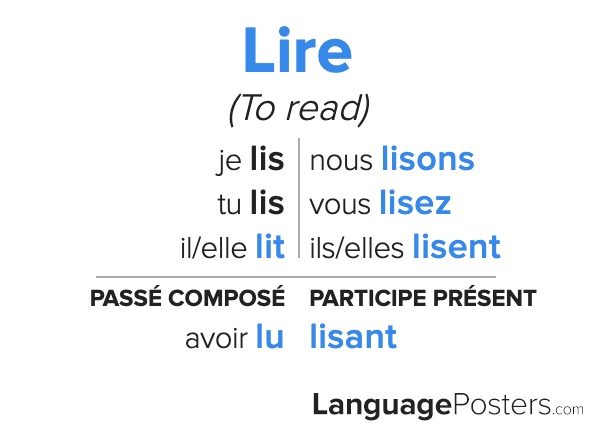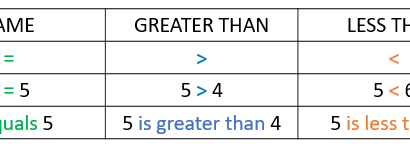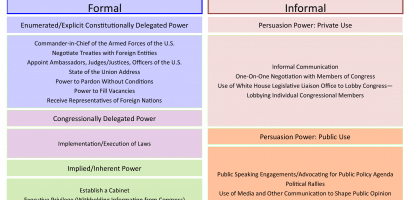So, lire is a word which we often encounter in French, though not exactly in this form. As a result, it is one of those benchmark words that we find people using randomly who do not even have detailed formal training in the French language. Therefore, it is a popular and widely used word. However, one might often confuse it with the English meaning of lire. So, in English, it means the fleshy parts from joints and limbs which one should separate. Therefore, it is also different from ‘lira’. Lira is an Italian word for the currency that the country uses. Therefore, here we will exclusively discuss what Lire means in French. Moreover, we will also see how we should conjugate it to use it in sentences.

What is the meaning of the French word Lire?
So now, we need to know that the correct English translation of the French word Lire would be “to read”. Hence, as it is obvious, to read is a verb in the infinitive form. Now, in English, we do not use the words “to read ” wherever we choose to mean reading. As a result, there are various forms of the verb according to the tense, voice, and so on. Therefore, in French too, one cannot use Lire always in this form only. Hence, there are various conjugations that the word has to go through to fit into a sentence. So, we will now take a look at all of those. However, before that let us take a look at an example to understand its application in a better way.

Give an example of how one should use the word Lire.
So now, think about this situation. You are now in Paris, loving the city and therefore enjoying a great semester. You love reading the newspaper every day to get the news as well as to practice reading in French. Therefore, one of your favorite activities is to stop by the kiosk every morning to buy your newspaper. Now your classmate Rob sees you. So, he stands at the kiosk and asks if you have read the newspaper. Hence, he asks,
“Ah, tu lis ( one pronounces this as too lee) le journal?”
Thereby you respond that yes, you have already read the newspaper. So, now you answer-
“ Oui, je lis le journal.” ( In French, you pronounce je lis as zhuh lee). Now, Rob replies that he too loves reading the newspaper. The French daily Le Monde is his favorite. Therefore, he says-
“Moi aussi, je lis le journal. Je lis Le Monde.”
Now, you see a group of your classmates is coming to the kiosk. They ask for a booklet called Paris Match. So, to engage in small talk you ask whether they read the Paris Math. Therefore, you tell-
“Vous lisez Paris Match?” (In French, you pronounce Vous lisez as voo lee-zay).
So, they now reply that they do read the Paris Match a lot. Hence, to express this, they tell-
“Oui, nous lisons beaucoup Paris Match!” ((In French, you pronounce nous lisons as noo lee-zohn).

Understanding how different forms of the verb lire works.
In French, you pronounce Lire as “leer”. It is an irregular verb. So, there can be no strict pattern which the conjugation follows like in regular verbs. This is because regular verbs have the same conjugation in the same circumstances. However, each irregular verb has a different conjugation under a different circumstance. This is why remembering irregular verbs might be a little tricky and difficult at times.
However, by now you must have realized that nowhere we have used “Lire” exactly in this way even when we have meant reading every time. This is because Lire or the infinitive form is the most basic form of the root verb. It is the generic form. Therefore, we cannot effectively use it while speaking or writing. When we place it with a suitable pronoun, the form automatically changes. When we mean “I read”, or “I am reading” or “I will read”, we choose the suitable form or conjugation of the verb. In this case, the relevant form of the verb is- “je lis”.
Even certain irregular problems have detectable patterns. These might include “battre” which means to beat, or “pendre” which means to take or the verbs which generally end with -aindre, -eindre, and -oindre. However, sadly, Lire does not even fall into one of these categories. It is one of the most remarkable irregular verbs. As a result, we cannot trace any pattern of its conjugation from other verbs. So, the only way to use its conjugation properly is to know its conjugation correctly. We should get them done by heart and remember the rules always. In the next section, we will see how conjugations occur under different circumstances of grammar and sentence formation.

Conjugations of the French verb Lire
“Lire in present indicative”
The following table will give you an idea of how to use Lire in the present indicative sentence.

| Pronoun in subject | Conjugation of lire | Pronunciation | Translation |
| je | je lis | zhuh lee | I read/ I am reading |
| tu | tu ilis | too lee | You read/ you are reading |
| il/elle/on | il/elle/on lit | eel/ el/ ohn lee | he/she reads/ he/she is reading |
| nous | nous lisons | noo lee- zohn | We read/ we are reading |
| vous | vous lisez | voo lee-zay | You read/ you are reading |
| ils/elles | ils/ elles lisent | eel/ el/ leez | They read/ they are reading |
Lire in passé composé or the compound past indicative
So, this is a French conjugation that can be used both for present perfect and past perfect. Therefore, the auxiliary verb one should use is avoir and the past principle lu. Hence, the following table will give you a better understanding of the conjugation with the respective pronoun.
| Pronoun in subject | Conjugation | Translation |
| je | ai lu | I read (read not in present tense) |
| tu | as lu | Did you read |
| il/ elle/ on | a lu | he/ she read |
| nous | avons lu | We read ( read in participle form) |
| Vous | avez lu | Did you read |
| Ils/ elles | ont lu | They read |
Lire in the imperfect indicative
So, there is another form of past indicative which French linguists call the L’imparfait of the verb. This, however, means not just a past action but a process that happens repeatedly in the past. Therefore, for the word Lire, this form in English would translate as “would read”, “used to read”, and so on. So, the conjugation of the verb with different pronouns for the usage of “used to” is-
| Pronoun in subject | Conjugation |
| je | lisais |
| Tu | lisais |
| Il/ Elle/ On | lisait |
| Nous | lisions |
| Vous | lisiez |
| Ils/ Elles | lisaient |
Lire in Simple Future Indicative
When we deal with the future tense in English, we only add the modal verb “will” to the main verb. However, it is not so simple in French. So, here, one has to conjugate various suffixes to the root verb to form the future sense. Hence, the pronouns with the adjoining conjugations are-
| Pronoun | Subjugation |
| Je | lirai |
| Tu | liras |
| Il/ Elle/ On | lira |
| Nous | lirons |
| Vous | lirez |
| Ils/ Elles | liront |
Lire in Near Future Indicative
Unlike in English, in French, the future tense has got different kinds again. So, there can be the near future or the futur proche. Therefore, the English for futur proche would be the cases where we use “going to” with the verb. In French, we create this near future sense by adjoining the simple present conjugation of the verb aller which means to go with the infinitive, “lire”. Hence, the conjugations with the adjunct pronouns are-
| Pronoun | Conjugation |
| je | Vais lire |
| tu | Vas lire |
| il/ elle/ on | Va lire |
| nous | Allons lire |
| vous | Allez lire |
| ils/ elles | Vont lire |

Lire in Conditional
So, we all know that the conditional mood establishes a condition in the sentence. However, it is a variant of the future tense only. The English equivalent to it is “would” along with the root verb. However, one thing is noticeable here. The way the infinitive ends here is quite similar to the way the conjugation in imperfect indicative ends. Hence we will see how it works now-
| Pronoun | conjugation |
| je | lirais |
| tu | lirais |
| il/ elle/ on | lirait |
| nous | lirions |
| vous | liriez |
| ils/ elles | liraient |
Lire in Present Subjunctive
So, this is a mood in which the pronoun places a prefix with it. Therefore, in this case, the expression is “que”. The conjugation looks very similar to the present indicative or the past imperfect. Hence, the following table will show you how the conjugation works-
| Person | Conjugation |
| Que je | lise |
| Que tu | lises |
| Qu’il/ elle/ on | lise |
| Que nous | lisions |
| Que vous | lisiez |
| Qu’ils/ elles | lisent |
Lire in the Imperative form
So, as we know, one uses the imperative mood to register commands, orders, requests as well as exclamations. As a result, they can be both positive or negative. However, in both cases, the form of the verb will remain the same. Therefore, the only difference is that in the case of negative, a “ne” prefix comes before the verb and expressions like “pas”, “plus”, or “jamais” after the verb.
Hence, for the affirmative statements, the conjugation is-
| Pronoun | Conjugation |
| tu | lis! |
| nous | lisons! |
| vous | lisez! |

Lire in Present Participle or Gerund
So now, the present participle form of the verb forms the gerund of the root verb. Therefore, in French, for regular verbs, the prefix one uses to form the gerund is the proposition “en” with the present participle form of the verb. Moreover, the present participle has other uses like being a verb, adjective, or even a noun.
Therefore, the present participle or gerund of Lire is “lisant”.




